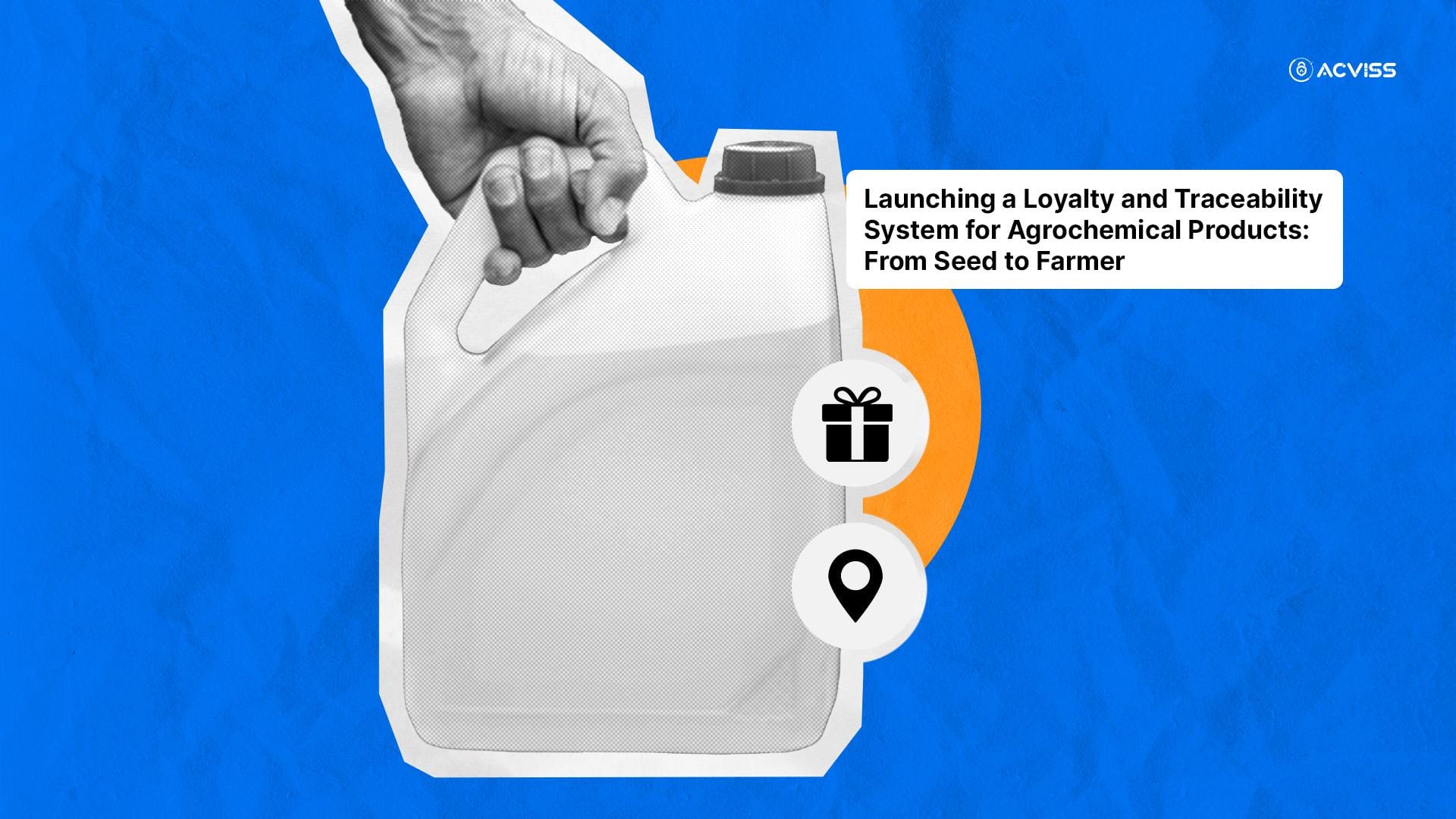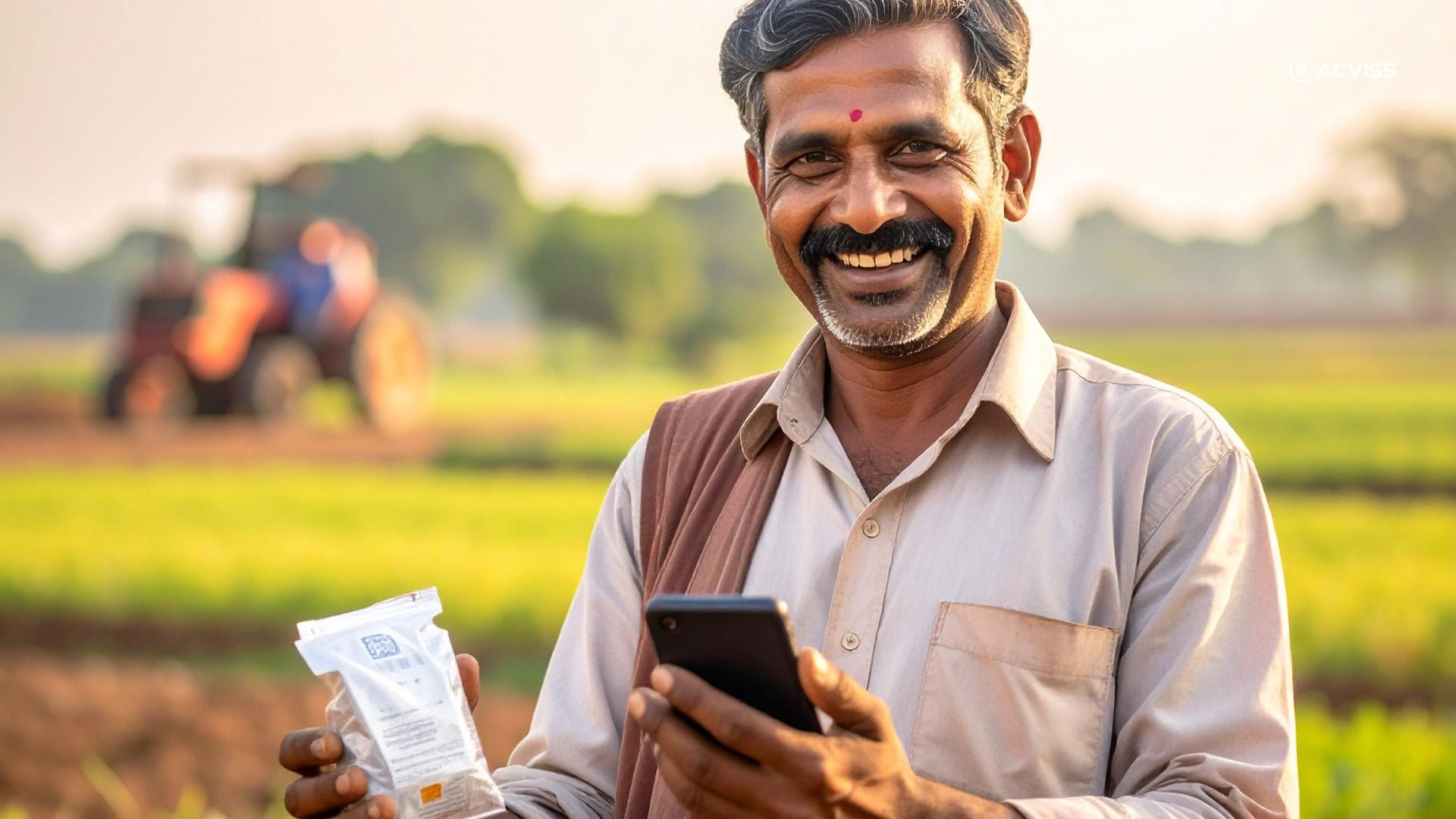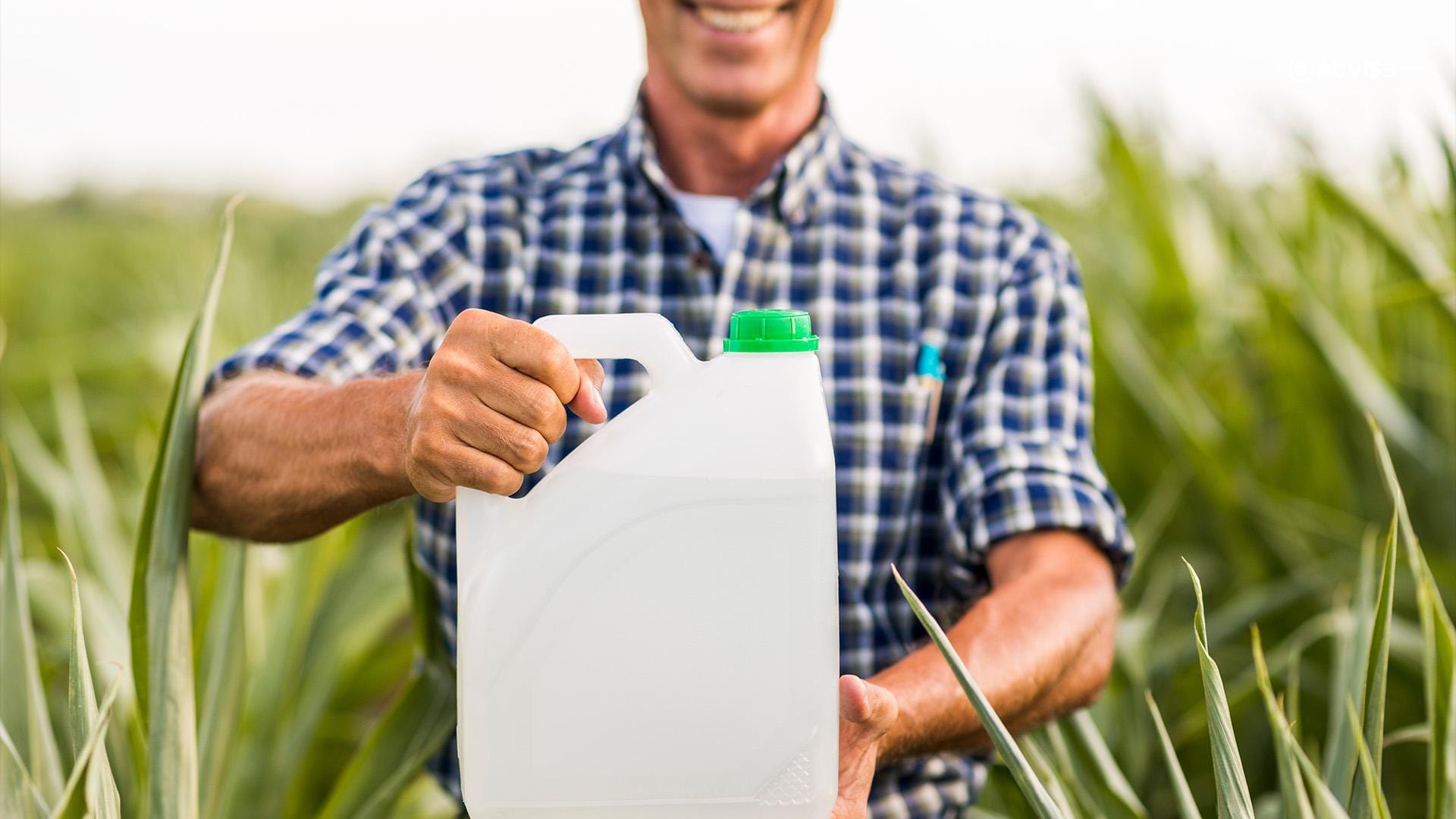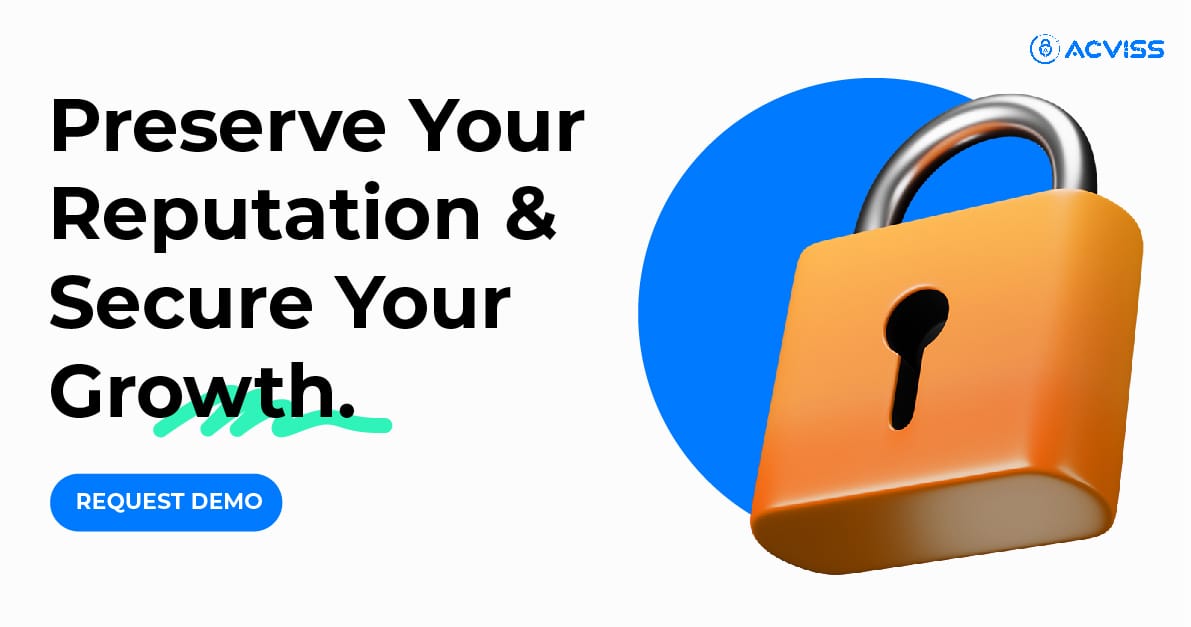How to Launch an End-to-End Loyalty and Traceability System for Agrochemical Products

The agrochemical industry stands at a crossroads. Farmers are losing trust in supply chains they can't see. Counterfeit fertilisers are contaminating fields. Channel partners are diverting products to markets they shouldn't reach. Meanwhile, legitimate manufacturers are watching their brand reputation corrode with every grey market transaction. These aren't theoretical problems anymore. They're costing the industry billions annually.
According to a 2023 report by the International Fertiliser Association, counterfeit and substandard agrochemical products cost farmers in developing regions approximately USD 4.6 billion per year in lost yields and damaged soil health. Yet most agricultural companies still rely on paper-based documentation, phone calls, and trust to manage their supply chains. The gap between what the industry needs and what it's actually doing has never been wider.
This is where a comprehensive loyalty and traceability system becomes not just an advantage, but a necessity. It's about creating a transparent ecosystem where every bottle of herbicide, every bag of seed treatment, and every litre of pesticide can be verified, tracked, and authenticated from manufacture to the farmer's field.
Understanding the Scope: Why Agrochemical Traceability Matters
The stakes in agricultural supply chain management have risen dramatically. Farmers are increasingly informed consumers who understand that what they purchase directly impacts their harvests, livelihoods, and the long-term health of their soil. Yet product authentication and brand verification remain largely absent from the agricultural sector, unlike in pharmaceuticals or premium consumer goods.
The challenge is multifaceted:
- Product diversion through unauthorised channels undermines brand protection efforts.
- It prevents accurate agro feedback loops that could help manufacturers improve formulations.
- It exposes farmers to products stored improperly, reducing efficacy and potentially causing harm.
A 2022 study found that in Southeast Asia alone, approximately 28% of agrochemical products sold were counterfeit, grey market, or substandard. Farmers using unverified products experienced yield reductions of up to 15% compared with those using authenticated, traceable alternatives.
Implementing track and trace solutions, manufacturers gain unprecedented visibility into product movement: where products are going, who is distributing them, and which farmers are using them. This transparency forms the foundation for brand protection, loyalty programmes, and data-driven agricultural improvement.
The Triple Threat: Counterfeiting, Diversion, and Brand Erosion

Before discussing solutions, we need to understand the problem clearly. Counterfeit agrochemicals represent a genuine threat to both farmers and the legitimate manufacturers trying to serve them.
Counterfeiters don't simply copy labels. They often produce inferior formulations using cheaper ingredients or outdated chemical ratios. When a farmer unknowingly applies a counterfeit fungicide that lacks the proper active ingredient concentration, the fungus survives. The farmer then assumes the product category doesn't work, potentially abandoning an effective control method. This perception travels through farming communities faster than accurate information ever could, damaging the brand even though the farmer never purchased a genuine product.
Product diversion compounds these issues. A distributor who purchases agrochemicals at manufacturer rates intended for one market might redirect them to another where prices are higher. This channel conflict creates two significant problems. Authorised dealers lose sales and margin. More importantly, the manufacturer loses visibility into actual market demand and cannot properly support farmers in markets where diversion is occurring.
Brand erosion follows naturally. When farmers begin to distrust a brand because they've had inconsistent results, or when they notice price fluctuations that signal grey market activity, the manufacturer's ability to build brand loyalty collapses. The relationship between farmer and brand, which should be built on trust and consistent performance, instead becomes transactional and suspicious.
Building Trust Through Transparency: The Role of Track and Trace Technologies
Modern supply chain management begins with the ability to track and trace every product unit. This is not simply about shipment location; it’s about creating an immutable record that proves authenticity and supports brand verification at every stage of the distribution network.
QR code technology has emerged as a practical starting point. Each product unit receives a unique QR code at manufacture. This code links to an encrypted data recording:
- Manufacture date
- Batch number
- Storage conditions
- Distribution channel
- Dealer information
When a farmer scans the QR code, they instantly receive confirmation of authenticity. Behind the scenes, manufacturers gain real-time data about product movement, spotting diversion attempts within hours rather than weeks.
Geo-fencing technology adds another layer of control. Manufacturers can set geographical boundaries for each market. Alerts trigger whenever products appear outside authorised regions, allowing immediate corrective action.
Integrating Product Authentication Into the Farmer Experience

Product authentication isn't just about combating counterfeits. They're about building a relationship between farmer and manufacturer that's grounded in trust and mutual benefit.
When farmers can verify the product they're purchasing through simple QR code scanning, several psychological and practical shifts occur. First, they develop confidence in their purchase. Second, they begin to associate the brand with transparency and quality. Third, they become part of a data ecosystem where their feedback and usage patterns can directly influence how manufacturers improve their offerings.
This verification process should be frictionless. The QR code should work offline, in areas with poor connectivity. It should provide instant visual confirmation without requiring the farmer to navigate complicated websites. The information should be in the local language and presented in language that resonates with agricultural users, not technical jargon.
The Loyalty Programme Architecture: Rewarding Trust and Consistency
Traceability provides the infrastructure, but loyalty programmes provide the incentive. When a farmer uses a tracked and traced product, they're generating data. That data becomes the foundation for a rewards system that recognises and incentivises continued use of authentic, verified products.
A well-structured agricultural loyalty programme might reward farmers through several channels. Points accumulation for purchases of authenticated products could translate into discounts on future purchases, access to premium product lines, or invitations to exclusive farmer educational events. More importantly, the programme creates a direct communication channel between manufacturer and farmer, enabling targeted advice about product application, optimal timing, and crop-specific recommendations.
The European agrochemical market has seen early success with such programmes. A leading fertiliser manufacturer implementing a QR-based loyalty system reported a 34 per cent increase in repeat purchases from registered farmers within the first year, alongside a measurable decrease in grey market activity within their distribution network. More significantly, they captured actionable feedback about product performance in specific growing conditions, which they used to refine their formulation strategy.
IP Protection and Brand Security in the Digital Age

Trademark protection and intellectual property protection in the agrochemical space extend beyond simply preventing counterfeiting. They involve creating a comprehensive ecosystem where your brand identity, your product formulations, and your farmer relationships are all protected simultaneously.
Anti-counterfeiting solutions and anti-counterfeiting technologies have evolved considerably. Modern approaches combine non-cloneable digital technologies with physical security features. QR codes alone aren't sufficient because they can be copied. The most effective systems integrate blockchain-based verification with unique physical markers that cannot be replicated.
This is where solutions like Origin by Acviss Supply Chain Traceability enter the picture. Origin provides real-time product tracking capabilities by integrating QR codes with blockchain technology, creating track and trace solutions that offer comprehensive supply chain transparency. The technology uses non-cloneable digital elements that prevent fraudulent replication whilst enabling farmers to verify product authenticity instantly. Each product movement is recorded on an immutable ledger, creating an audit trail that establishes brand verification and brand authentication at every stage from manufacture to field application.
The integration with existing enterprise systems means manufacturers don't need to rebuild their entire infrastructure. Origin integrates with ERP systems to ensure that product tracking begins at manufacture and continues seamlessly through distribution. This supply chain visibility helps manufacturers anticipate supply chain issues, maintain inventory management accuracy, and prevent product diversion before it occurs.
Real-World Implementation: From Strategy to Farmer Adoption
Implementing a loyalty and traceability system requires a strategic approach addressing three audiences:
- Distribution partners: Traceability protects their reputation, prevents accidental counterfeit sales, and provides local market insights.
- Retailers: Verified products reduce inventory complexity and shield against counterfeit complaints.
- Farmers: Education and demonstrations prove the system’s value. Field days, where farmers scan products and see verification results, combined with loyalty incentives, drive adoption.
An Indian manufacturer piloting such a system saw 67% farmer adoption of QR verification within four months, with 71% reporting increased confidence in their purchases.
The Data Advantage: Transforming Supply Chain Management Into Strategic Intelligence
Perhaps the greatest long-term benefit of implementing a comprehensive loyalty and traceability system isn't fraud prevention, though that's valuable. It's the data you gain about your market.
When every product unit carries a unique identifier and that identifier records who purchased it and where, you gain unprecedented insight into real market demand at the farmer level. You can identify emerging preferences, regional variations in product usage, and correlations between product type and agricultural outcomes. This data becomes the foundation for new product development, targeted marketing, and distribution strategy optimisation.
Furthermore, product authentication data helps with regulatory compliance. As global standards around agricultural product reporting and sustainable sourcing intensify, having end-to-end traceability documentation becomes invaluable. Regulators can trace any product concern back to its source. Farmers can prove they used approved, certified products.
Looking Forward: The Standard of the Future

Five years from now, farmers will expect product authentication and supply chain transparency as standard features, not premium options. Agrochemical manufacturers who haven't yet implemented comprehensive traceability systems are simply behind.
The combination of track and trace solutions, loyalty programmes, and brand protection technologies isn't a nice-to-have anymore. It's becoming table stakes in an industry where farmer trust is increasingly difficult to build and easily lost.
The manufacturers leading this transition are discovering something important: transparency and loyalty aren't opposed forces. They work together. Transparent supply chains build trust. Trust enables loyalty. Loyalty creates the data that drives continuous improvement and competitive advantage.
Taking the Next Step
If your organisation is ready to transform your agrochemical supply chain from a logistics challenge into a strategic advantage, the time to act is now. A comprehensive loyalty and traceability system creates value at every level: protecting your intellectual property and brand verification processes, preventing counterfeit products from damaging your reputation, building direct relationships with farmers based on trust and verified product performance, and generating intelligence that drives future strategy.
The path from seed to farmer doesn't need to remain a black box. With the right technology partner and strategic approach, it can become a transparent, trackable, and rewarding journey for everyone involved.
Interested in learning how a comprehensive track and trace solution could transform your agrochemical brand's supply chain management and farmer loyalty programmes?Get in touch with us today to discuss how Origin by Acviss can provide the product traceability, brand protection, and supply chain visibility your business needs.
